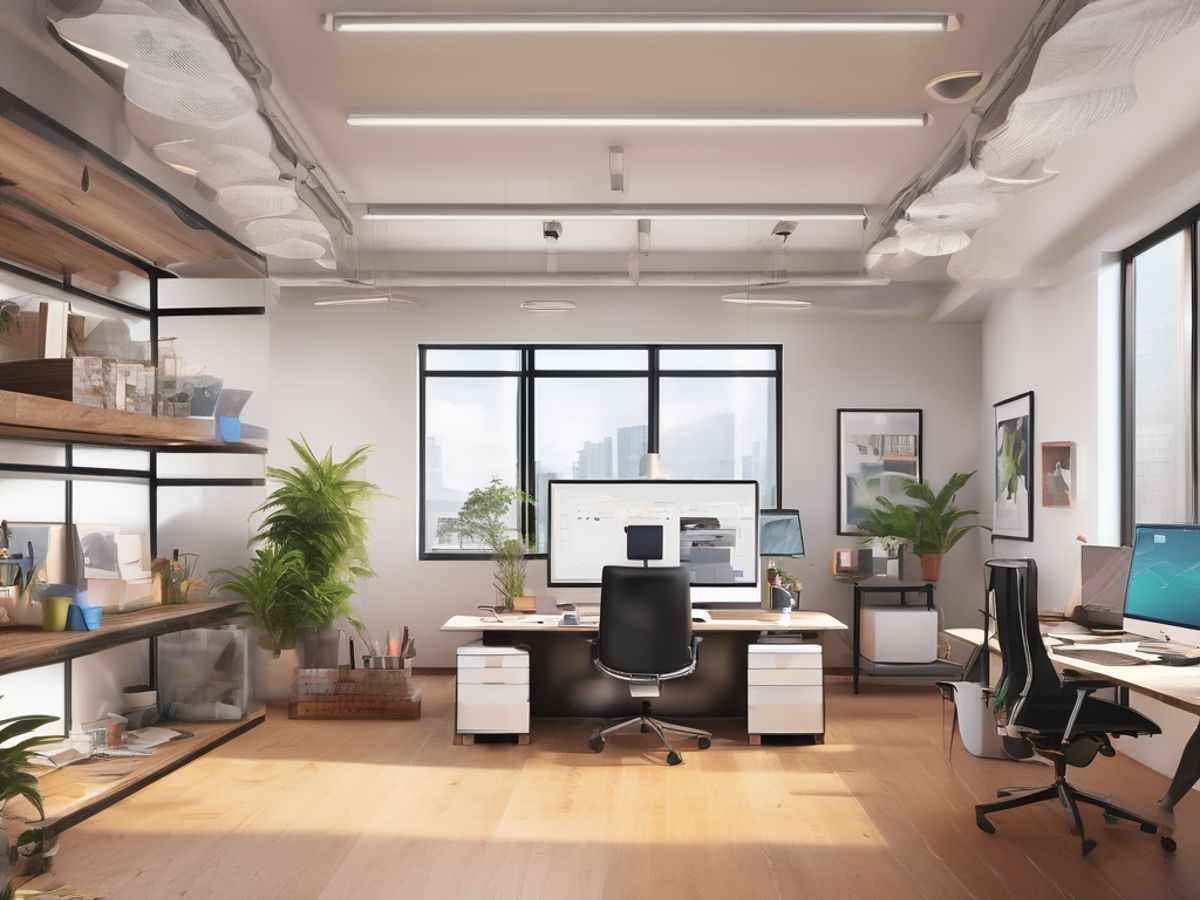Building your dream website can be an exciting yet daunting task, especially if you’re not familiar with the technical aspects of web design. This article aims to guide you through the process of finding the right help to create a website that not only looks great but also performs well. Whether you’re considering a DIY approach or seeking professional assistance, understanding the basics and knowing what to look for in a web designer are crucial steps.
Key Takeaways
- Understand the fundamental principles of website design to ensure your site is both aesthetically pleasing and functional.
- Explore different website building platforms and choose one that suits your specific needs, whether it’s for e-commerce, blogging, or a portfolio site.
- Recognize the value of professional web design help to enhance your site’s usability and effectiveness.
- Learn how to find and select a reliable web designer by assessing their portfolio, reviews, and communication style.
- Plan your website meticulously with a designer to ensure it aligns with your brand’s vision and goals.
Understanding the Basics of Website Design
Why Good Design Matters
Good design is crucial because it affects how visitors perceive your website. A well-designed website can help establish trust and encourage visitors to take action, whether that’s making a purchase, signing up for a newsletter, or reaching out for more information.
Key Elements of a Successful Website
To build a successful website, several key elements must be in place:
- Clear navigation: Ensure visitors can easily find what they need.
- Responsive design: Adapts to different screen sizes and devices.
- Quality content: Engaging and informative content that meets the needs of your audience.
- Fast load times: Optimize images and streamline code to improve speed.
Common Design Mistakes to Avoid
Avoiding common design mistakes is just as important as implementing the right features. Overloading a website with too much information or too many images can overwhelm visitors and detract from your main message. Keep your design clean and focused, and always prioritize user experience to keep visitors coming back.
Choosing the Right Platform for Your Website
When we embark on the journey of building a website, one of the most pivotal decisions we face is selecting the right platform. This choice will fundamentally influence how we develop, manage, and scale our site. The platform you choose must align with the specific needs and goals of your website, ensuring it can grow and adapt as your business evolves.
DIY Website Builders
For those of us who prefer a hands-on approach or have limited coding skills, DIY website builders offer a straightforward solution. Platforms like Wix, Squarespace, and Shopify provide user-friendly interfaces, with drag-and-drop features that make website creation accessible to everyone. These tools are ideal for small businesses, blogs, and personal portfolios, where simplicity and ease of use are paramount.
Custom Development Options
If your website requires more customized solutions or you have specific performance and integration needs, exploring custom development options is essential. This involves working with web developers to create a tailored website from scratch, offering complete control over every aspect of your site’s functionality, design, and scalability.
Evaluating Platform Features
Before making a final decision, it’s crucial to thoroughly evaluate the features each platform offers. Consider factors like scalability, security, support, and integration capabilities. Here’s a quick comparison to help guide your choice:
| Platform | Scalability | Security | Support | Integration |
|---|---|---|---|---|
| Wix | Moderate | High | High | Moderate |
| Squarespace | High | High | High | Moderate |
| Shopify | High | High | High | High |
Choosing the right platform is a balance of understanding your current needs and anticipating future growth. Make sure to select a platform that not only meets your immediate requirements but also has the capacity to evolve with your business.
The Importance of Professional Help with Websites
Benefits of Hiring a Professional
We understand that creating a website that stands out in today’s competitive market requires more than just basic knowledge. Hiring a professional ensures that your website is not only visually appealing but also functionally robust, addressing security vulnerabilities and keeping up with the latest technologies.
When to Seek Expertise
It’s crucial to recognize when it’s time to seek professional help. If you’re facing technical challenges, or if your website requires complex features that go beyond basic templates, it’s time to consult a professional. This ensures that your website aligns with your business goals and provides a strong online presence, often the first point of contact between your company and its customers.
Cost vs. Value in Professional Web Design
While the initial cost of hiring a professional may seem high, the long-term value they bring to your business can be substantial. Professionals not only design your website but also optimize it for search engines and mobile devices, ensuring it performs well across all platforms. This optimization is crucial for maintaining a competitive edge in your market.
Finding and Selecting a Web Designer
When it comes to building your dream website, finding the right web designer is crucial. We must choose a designer who not only has the technical skills but also understands our vision and goals. Here are some steps and tips to help us in this process:
Where to Look for Reliable Designers
- Referrals: Ask friends, colleagues, and your professional network for recommendations.
- Online Platforms: Utilize platforms like Upwork, Google, and Clutch to find freelancers and agencies.
- Local Listings: Check local business listings and Google My Business for nearby designers with good reviews.
Assessing Portfolios and Reviews
It’s essential to review the portfolios of potential designers. Look for diversity in design and technical competencies. Reading client reviews can also provide insights into a designer’s reliability and the quality of their work. Here are some points to consider:
- Quality of Previous Work: Does the work reflect a range of skills?
- Client Satisfaction: Are there consistent positive reviews?
- Problem-solving Capabilities: Look for evidence of their ability to overcome design challenges.
Setting Clear Expectations
Once we’ve narrowed down our choices, it’s important to set clear expectations. This includes discussing the scope of the project, timelines, and budget. Clear communication from the start can prevent misunderstandings and ensure a smooth workflow.
Note: Always ensure that the terms of the contract are clear and agreed upon by both parties to avoid future complications.
Planning Your Website with a Designer
Initial Consultations and Brainstorming
We understand the importance of aligning our vision with your expectations. That’s why we start with thorough initial consultations and brainstorming sessions. These meetings are crucial for setting the stage for a successful website design that truly reflects your brand and meets your business objectives.
Mapping Out the Site Structure
Mapping out the site structure is a fundamental step in the website planning process. It involves visualizing the pages that will appear on your site and how they will connect to each other. This step ensures that the website’s navigation is user-friendly and that the content is organized logically.
Choosing Visuals and Themes
Choosing the right visuals and themes can significantly enhance the appeal of your website. We work closely with you to select images, color schemes, and design motifs that resonate with your brand identity. This collaborative approach helps in creating a visually cohesive and attractive website.
We’re committed to building a website that not only looks great but also performs well, ensuring a seamless user experience.
Optimizing Your Website for Performance
Ensuring your website performs at its best is crucial for both user satisfaction and search engine rankings. Here are some key areas we focus on to optimize performance:
Enhancing Site Speed
To enhance site speed, we implement several strategies such as using a Content Delivery Network (CDN), optimizing image sizes, and minimizing the number of plugins. These steps help in reducing load times significantly, making the website more responsive and user-friendly.
SEO Best Practices
We adhere to SEO best practices by optimizing content and structure for search engines. This includes proper use of keywords, ensuring mobile-friendliness, and improving meta descriptions and titles to boost visibility and rankings.
Mobile Optimization
With the increasing use of mobile devices to access the web, mobile optimization is essential. We focus on responsive design, optimizing the space above the fold, and ensuring that the most important elements are visible and engaging on smaller screens.
Remember, regular updates and optimizations based on performance metrics and user feedback are key to maintaining a high-performing website.
Maintaining and Updating Your Website
Regular Check-ups and Updates
We understand the importance of keeping your website in top shape. Regular check-ups and updates are crucial to ensure that your website remains secure, functional, and aligned with the latest web standards. Regularly scheduled maintenance can prevent many common issues that websites face as they age.
- Review and update content to keep it fresh and relevant
- Check for and apply updates to the CMS and plugins
- Perform backups to safeguard your data
Dealing with Technical Issues
When technical issues arise, it’s essential to address them promptly to avoid disrupting the user experience. We prioritize identifying and resolving these issues quickly, ensuring minimal downtime. Our approach includes:
- Diagnosing the problem accurately
- Implementing the necessary fixes
- Testing the website to confirm everything runs smoothly
Engaging with Your Audience Through Content
Engaging with your audience is key to maintaining a successful online presence. We focus on creating and updating content that resonates with your visitors, encouraging interaction and return visits. By regularly updating your content, you can keep your audience engaged and interested in what you have to offer.
- Develop a content calendar to plan posts
- Use analytics to understand what content performs well
- Encourage user interaction through comments and social media
Keeping your website up-to-date is crucial for ensuring it continues to meet your business needs and attract new clients. Visit our ‘How It Works‘ section to understand the process we follow to maintain and update websites effectively. Let’s ensure your online presence is always fresh and engaging!
Conclusion
In conclusion, building your dream website doesn’t have to be a daunting task. With the right help, you can transform your vision into a stunning and functional online presence. Whether you choose to work with a seasoned professional like Marco Mundo or opt for a DIY approach with website builders, the key is to find a solution that aligns with your needs, budget, and timeline. Remember to leverage reviews, recommendations, and your own research to make an informed decision. Ultimately, the right partnership or tool will not only help you build your website but also ensure it effectively represents your brand and meets your business goals.
Frequently Asked Questions
Why is good website design important?
Good website design is crucial because it impacts how your audience perceives your brand. The first impression can either get them to remain on your page and learn about your business or leave and turn to a competitor. A good design helps you keep your leads on your page.
What are the key elements of a successful website?
The key elements include a clear and intuitive navigation, responsive design, fast load times, effective call-to-action buttons, and high-quality content. All these factors enhance user experience and contribute to higher conversion rates.
How do I choose the right platform for my website?
Choosing the right platform depends on your specific needs. Consider the nature of your website, your technical skills, and your budget. Platforms like WordPress offer flexibility and extensive features, while DIY website builders like Wix or Squarespace might be better for simpler, less custom sites.
What are the benefits of hiring a professional web designer?
Professional web designers bring expertise and experience that can significantly enhance the quality of your website. They understand the latest design trends, can optimize your site for SEO, and ensure it’s responsive across all devices, potentially saving you time and increasing your site’s effectiveness.
How can I optimize my website for better performance?
To optimize your website, focus on improving load speeds, ensuring it’s mobile-friendly, and enhancing the overall user experience. Implementing SEO best practices can also increase visibility and drive more organic traffic to your site.
What should I consider when maintaining my website?
Regular updates, security checks, and backups are essential. It’s also important to consistently update content and engage with your audience through blogs, social media, and newsletters to keep your website dynamic and relevant.



